In 2024, Suan Dusit University reaffirmed its commitment to promoting the sustainable management of land for tourism through a series of educational outreach programmes that connected environmental awareness, cultural heritage preservation, and responsible tourism practices. These initiatives reflected the university’s mission to integrate education, research, and community engagement as part of its strategy to foster sustainability in local and national tourism development. Through collaborative projects with government agencies, the private sector, and local communities, SDU has transformed its educational philosophy into practical action, demonstrating how learning can serve as a bridge between human activity and the natural environment.
One of the most significant initiatives was the training programme titled “Sustainable Guiding: Carbon Neutral Tourism in Action,” organized by the School of Tourism and Hospitality Management. The programme aimed to enhance professional knowledge among tour guides, tourism operators, and students regarding the principles of low-carbon tourism and environmentally responsible land use in tourism. Participants, numbering around eighty people from both local and national sectors, were trained in topics such as carbon footprint calculation, sustainable itinerary design, and the use of digital tools like the ZERO CARBON App for emission tracking and offsetting. The training emphasized the role of guides as key actors in shaping tourist behavior, reducing environmental impacts, and promoting tourism routes that preserve natural and cultural landscapes. This activity effectively translated academic knowledge into applied skills that supported responsible land management for tourism and fostered long-term environmental stewardship.
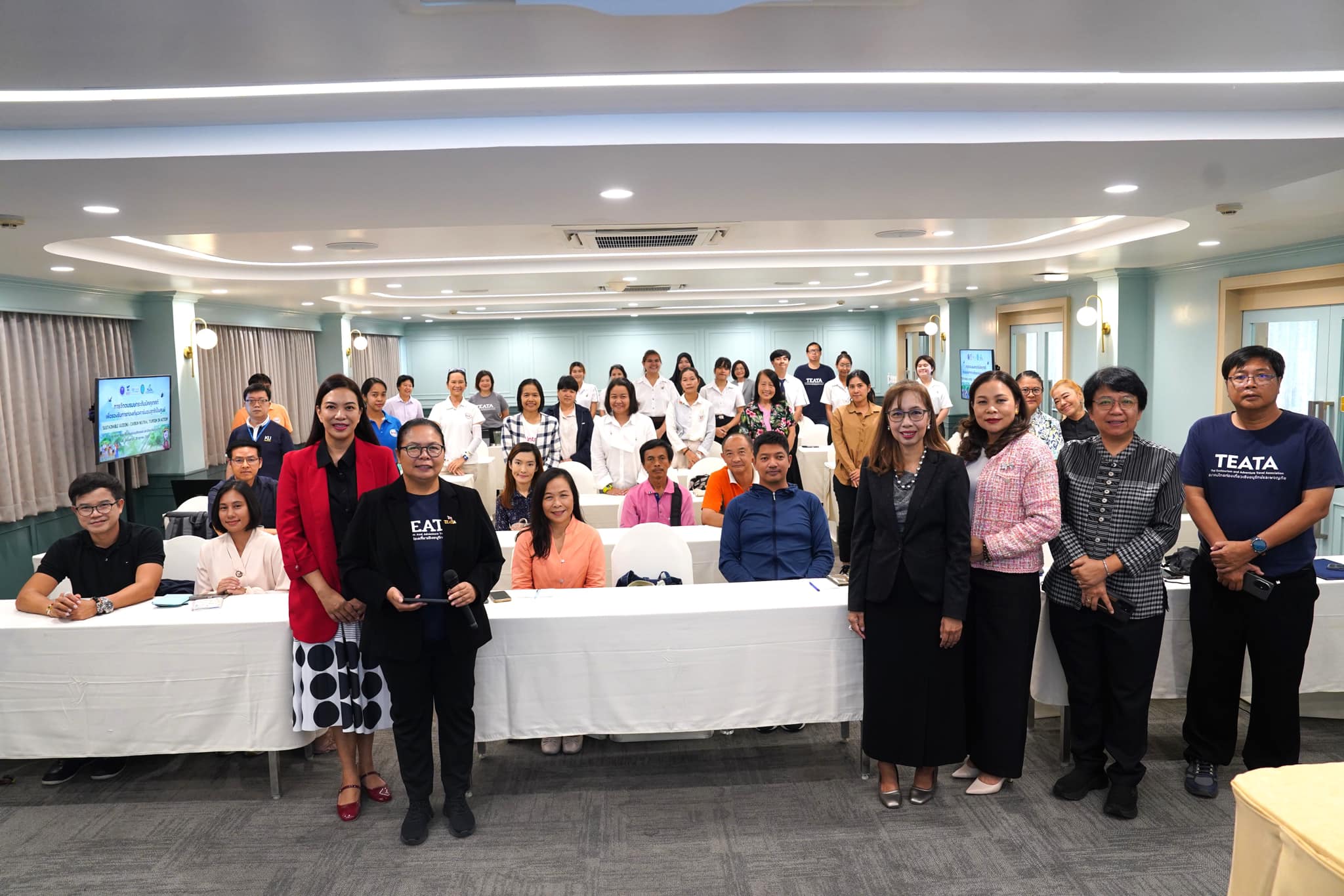
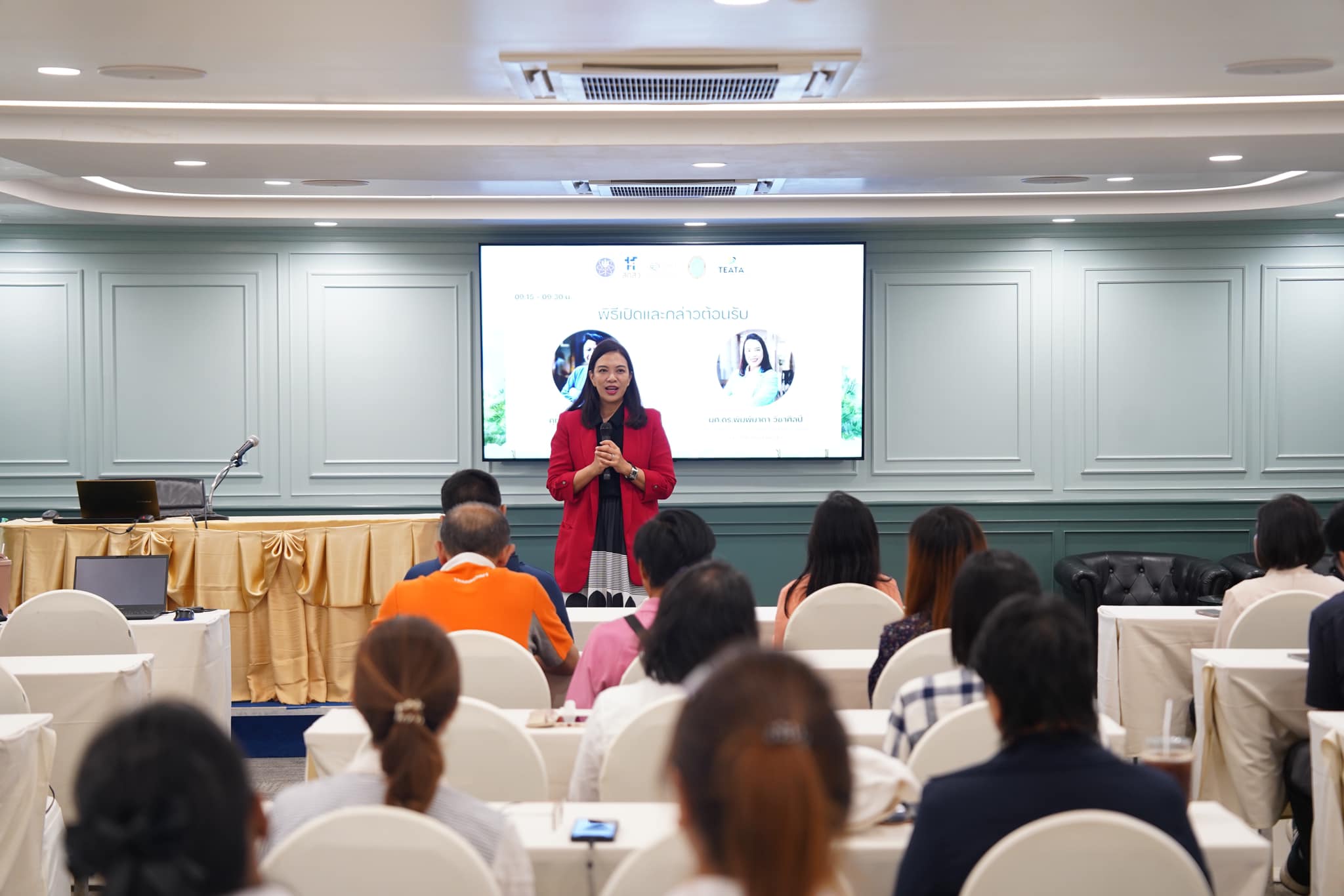
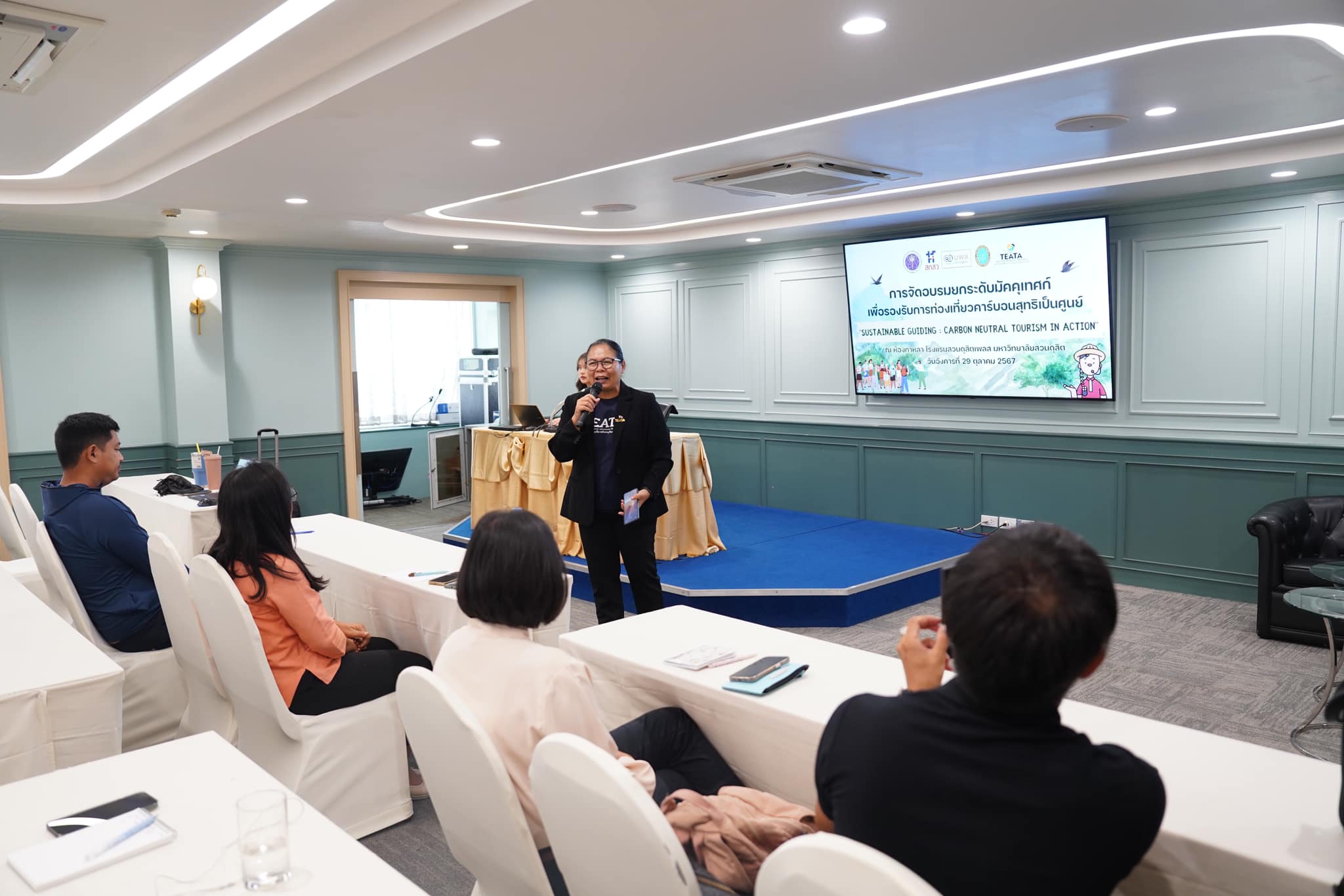
The university also developed the short-course training programme “Nostalgia Tourism Design and Green Tourism Management,” which focused on the creative use of cultural and historical spaces as sustainable tourism resources. Fifty participants, including local entrepreneurs, community leaders, and students, joined the programme to learn about cultural landscape preservation, adaptive reuse of heritage buildings, and community-based tourism design. Through the concept of nostalgia tourism, participants explored how memory and identity could be incorporated into sustainable travel experiences that value both place and history. The course encouraged the protection of existing land resources and historical sites while supporting economic and social sustainability for the communities that inhabit them. By combining creativity, education, and environmental ethics, this programme cultivated a new generation of tourism professionals committed to maintaining the delicate balance between tourism development and cultural conservation.
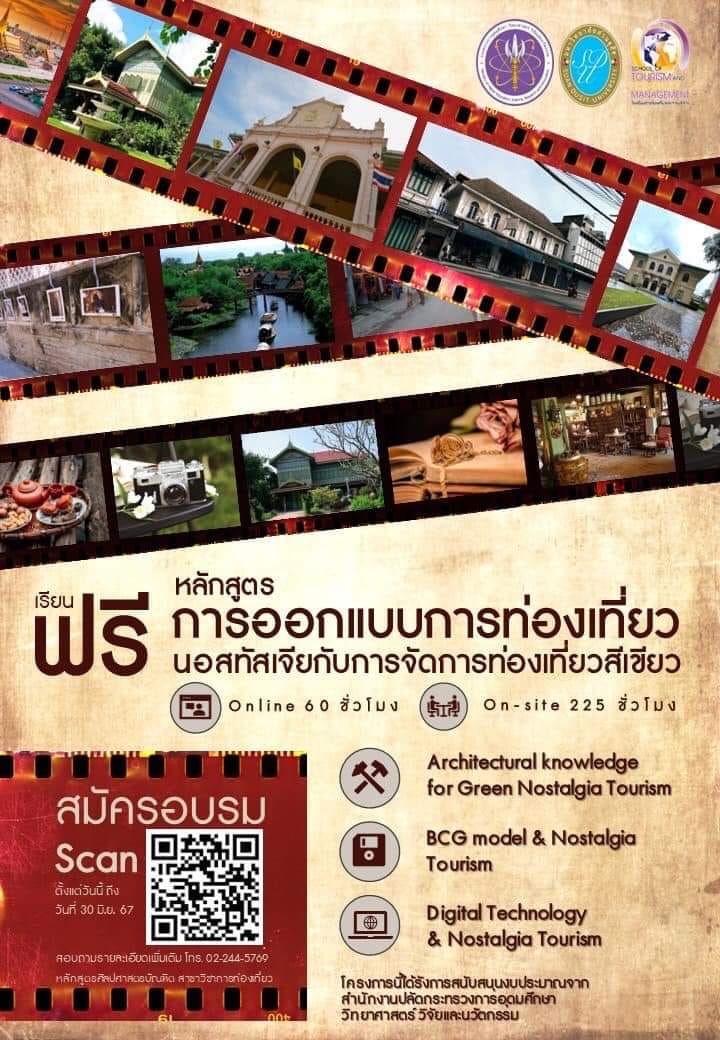
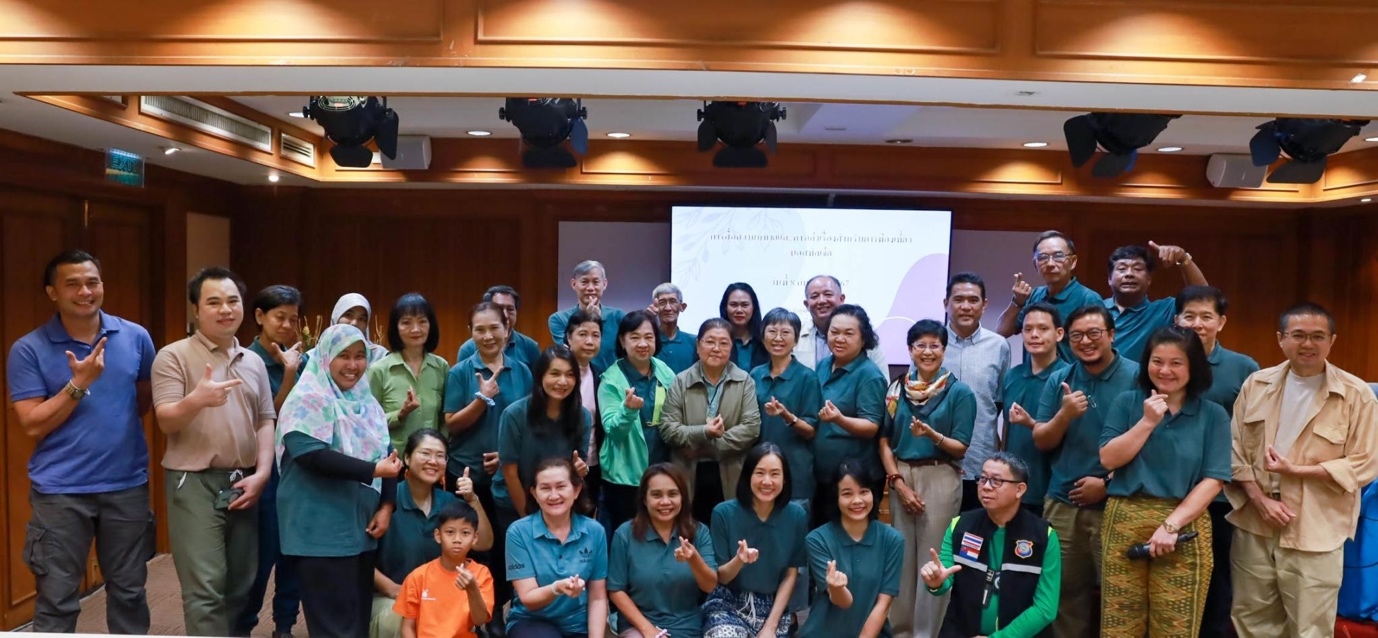
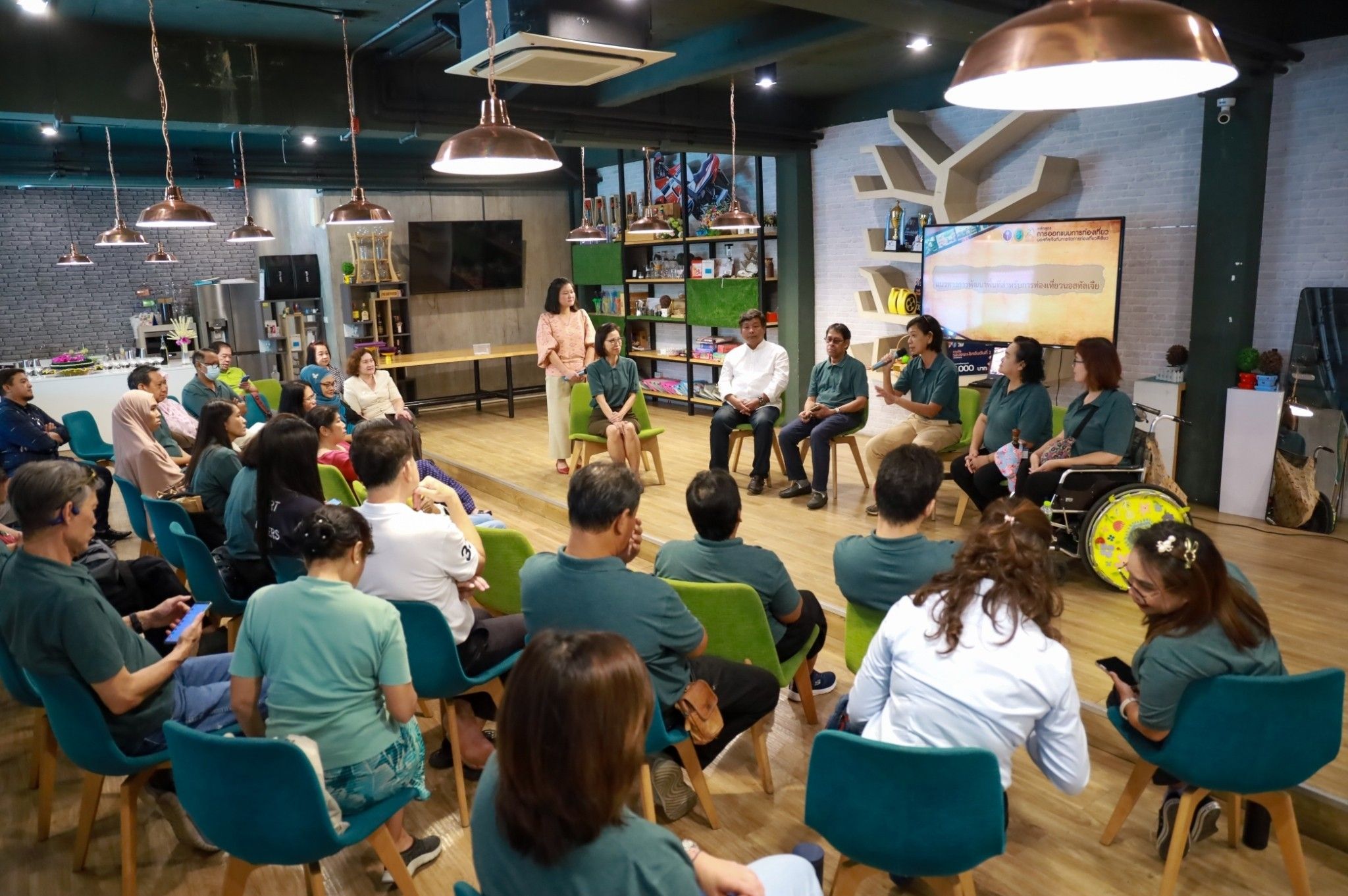
Another key initiative was the “Suphan Buri Model: Sustainable Safe Food City,” conducted by the Hub of Talents in Gastronomy Tourism in collaboration with the National Research Council of Thailand (NRCT). This project aimed to develop Suphan Buri Province as a model city for safe food production, sustainable agriculture, and gastronomy tourism. It established partnerships among universities, government agencies, private sectors, and communities under the Quadruple Helix framework, working together to enhance agricultural land management, food security, and tourism sustainability. Through seminars, exhibitions, and outreach events—such as the presentation “Suphan Buri: A Model City for Safe Food and Sustainable Living” at the Thailand Research Expo 2024—the project showcased the integration of agricultural innovation and tourism development. Participants learned how agricultural landscapes could be managed for both food production and ecotourism, turning farmlands into learning spaces that connect visitors with local culture and environmental sustainability. The initiative demonstrated how sustainable land use for tourism could simultaneously strengthen community economies, protect biodiversity, and preserve traditional knowledge.
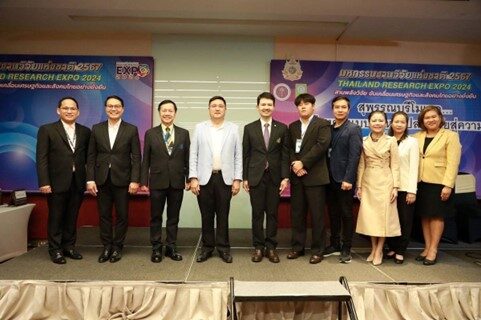
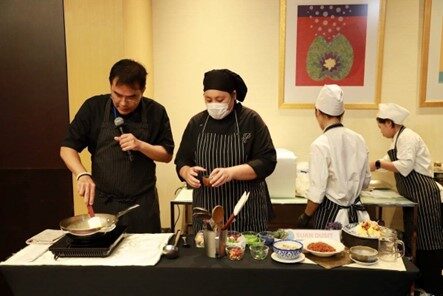
Taken together, these initiatives embody Suan Dusit University’s vision of using education as a catalyst for sustainable change. The programmes not only enhanced professional competencies and environmental awareness among participants but also empowered communities to manage their land and resources more sustainably. They reflect a holistic model of education that extends beyond the classroom—where the university acts as a living laboratory and a connector between people, nature, and knowledge. Through these efforts, SDU has become a key contributor to promoting sustainable tourism practices in Thailand, ensuring that cultural landscapes, agricultural land, and natural resources are valued and protected as integral parts of responsible tourism development. In doing so, the university demonstrates how academic outreach can lead to tangible impacts on sustainable land management for tourism, fostering harmony between human experience, cultural heritage, and the environment for generations to come.
